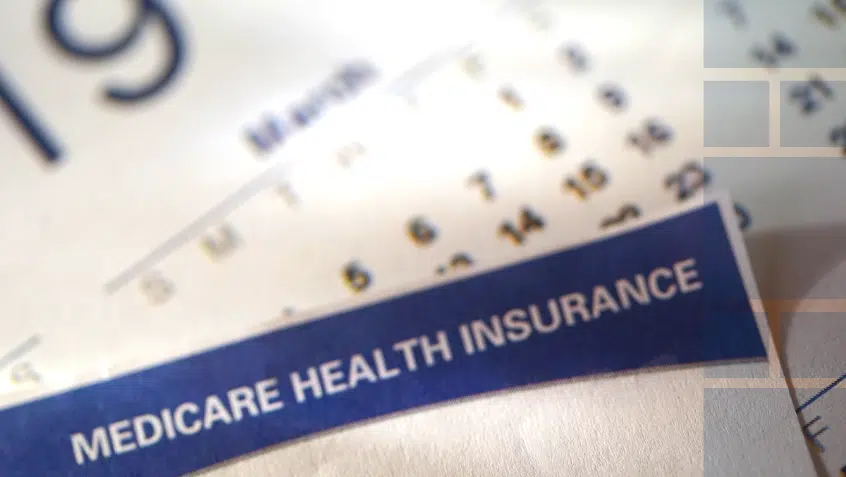Join Us Live for a Discussion on Medicare, Democracy, and the Future of Health Care
Analysis Shows Benefits for People with Medicare in the Current “Build Back Better” Bill

As the “Build Back Better” (BBB) budget reconciliation bill begins its journey through Congress, the Kaiser Family Foundation (KFF) has updated a valuable resource explaining the budgetary effects and huge public good of many of the bill’s major health provisions. These provisions include several that have been long-standing goals of the Medicare Rights Center, including Medicare prescription drug negotiation to lower drug costs, especially insulin; limiting the amount Part D enrollees pay out-of-pocket each year; adding a hearing benefit to Medicare; expanding availability of Home- and Community-Based Services (HCBS) through Medicaid; and closing the Medicaid coverage gap.
One of the most promising aspects of the BBB would be the proposal to allow Medicare to negotiate prescription drug prices. Currently, the program is not permitted to negotiate, unlike other programs like the Veteran’s Administration that negotiate steep discounts on many drugs. While the BBB’s current negotiation provisions are not as robust as some previous bills, they would be a meaningful step toward reducing prices for people with Medicare. KFF notes that it is unclear currently how many people would be affected, but it would be likely to reduce Part D premiums for all enrollees and reduce costs for insulin-dependent diabetics.
KFF also notes that the cap on beneficiary out-of-pocket spending for Part D medications would greatly help those with high drug costs, potentially saving thousands of dollars for those in the highest spending brackets. And the impact of this provision would grow through time as more and more beneficiaries would reach the out-of-pocket limit.
The addition of a hearing benefit in Medicare would fill a significant gap in coverage and give options to the millions of people with Medicare who currently lack any access to hearing care. Currently, some Medicare Advantage enrollees have access to some limited hearing benefits, but this would level the playing field for those with traditional Medicare by covering hearing rehabilitation, treatment, and hearing aids.
Another vital proposal in the BBB would increase funding for HCBS through Medicaid, which would increase access, reduce waiting lists, strengthen the workforce, and create new processes to monitor quality. Older adults and people with disabilities overwhelmingly want to stay safely in their homes rather than move to a congregate setting like a nursing facility. While the funding that the BBB would provide would not do everything necessary to make HCBS universally available, this proposal would improve the options individuals have and set the stage for future improvements.
Though eliminating the Medicaid coverage gap would not directly affect people with Medicare, it is still very important for the program and future beneficiaries. This proposal would provide coverage to approximately 2.2 million uninsured people with incomes under the poverty level, mostly in Texas, Florida, Georgia, and North Carolina. As KFF notes, half of those in the coverage gap are working and six in 10 are people of color. This would be a very important step to ensure that people have access to care and coverage before they are eligible for Medicare, improving both their well-being and the financial stability of the Medicare program.
At Medicare Rights, we are hopeful that the BBB will pass and make these important changes that will greatly improve the lives of people with Medicare and their families. Many of the provisions fill significant gaps and have been long-standing priorities for us and for many of our partner organizations. It is not too late to make your voice heard. Use our Action Center to send an email to your member of Congress, or call the U.S. Capitol Switchboard (202-224-3121) to connect by phone.
Show Comments
We welcome thoughtful, respectful discussion on our website. To maintain a safe and constructive environment, comments that include profanity or violent, threatening language will be hidden. We may ban commentors who repeatedly cross these guidelines.
Help Us Protect & Strengthen Medicare
Donate today and make a lasting impact
More than 67 million people rely on Medicare—but many still face barriers to the care they need. With your support, we provide free, unbiased help to people navigating Medicare and work across the country with federal and state advocates to protect Medicare’s future and address the needs of those it serves.
The Latest
Most Read
Add Medicare to Your Inbox
Sign up to receive Medicare news, policy developments, and other useful updates from the Medicare Rights.
View this profile on InstagramMedicare Rights Center (@medicarerights) • Instagram photos and videos









